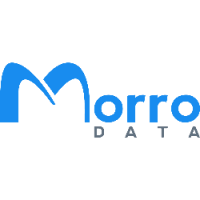Hybrid Cloud Management Solution and Use Cases
Hybrid Cloud Management Solution and Use Cases
The adoption of multi-cloud or hybrid cloud solutions among businesses has been steadily gaining momentum for years, and this trend is expected to continue growing through 2024. As businesses see the advantages of using different cloud strategies, hybrid cloud becomes essential for meeting diverse business needs. Let’s explore how hybrid cloud solutions are changing the way businesses operate and look at examples that highlight its transformative power.
What’s Hybrid Cloud?
Hybrid cloud represents a strategic blend of on-prem and public cloud environments tailored to meet the unique needs of businesses. This architecture enables seamless integration and orchestration of resources across on-premises infrastructure, private clouds, and public cloud platforms. By leveraging both cloud models, organizations can achieve flexibility, scalability, and agility and keep the local performance.
Hybrid Cloud’s Capability
Scalability
By leveraging a combination of on-premises infrastructure and cloud resources, organizations can dynamically expand storage capacity into the cloud as their on-premises storage approaches its limits. This approach ensures seamless scalability without requiring significant hardware investments.
Accessibility
Users enjoy easy access to files and data through hybrid cloud solutions, regardless of their location, as long as they have an internet connection. This accessibility fosters collaboration and productivity, especially for remote or distributed teams.
Data Redundancy and Disaster Recovery
Hybrid cloud solutions provide robust redundancy and disaster recovery capabilities by replicating data across multiple locations, including on-premises servers and cloud storage. In the event of hardware failures or disasters, organizations can quickly recover data from off-site backups, minimizing downtime and data loss risks.
Maintenance and Management
Cloud providers shoulder a significant portion of maintenance and management tasks in hybrid cloud solutions. With automated updates, security patches, and performance monitoring included in cloud services, the IT team can focus on strategic initiatives rather than routine maintenance.
Cost Considerations
Hybrid cloud solutions offer a flexible cost structure with pay-as-you-go pricing for cloud storage and services. This model allows organizations to avoid upfront hardware investments and adjust storage capacity as needed, paying only for the resources they use.
Morro Data CloudNAS in Action
Morro Data’s hybrid cloud solution offers a range of versatile use cases that cater to the evolving needs of modern businesses, regardless of their size. Here are some examples:
-
Centralized File Storage
Morro Data’s hybrid cloud solution provides a unified platform for file storage, seamlessly integrating on-premises infrastructure with cloud storage. This use case enables organizations to consolidate their file storage, making it easily accessible from different locations.
-
Collaborative Work Environments and Remote Office/Branch Office (ROBO) Support
Facilitating collaborative work environments, Morro Data allows teams to access and share files effortlessly. Whether working from the office or remotely, employees can collaborate in real-time, enhancing productivity and efficiency. CloudNAS is particularly well-suited for organizations with remote offices or branch locations. It ensures that all offices have consistent and reliable access to shared files, fostering collaboration and connectivity across the entire organization.
-
Scalable Storage Capacity
Morro Data’s solution allows organizations to scale their storage capacity dynamically. By leveraging both on-premises and cloud resources, businesses can adapt to changing storage requirements without the need for extensive hardware investments.
-
Data Backup and Recovery
The hybrid cloud solution provides robust data backup and recovery capabilities. By replicating data across on-premises servers and cloud storage, Morro Data ensures data redundancy and quick recovery in the event of hardware failures or data loss.
-
Reduced IT Overhead
The hybrid cloud solution minimizes IT overhead by offloading routine maintenance and management tasks to Morro Data. With automatic updates, security patches, and performance monitoring included, IT teams can focus on strategic initiatives rather than day-to-day operations.
Future Trends
Looking ahead, the hybrid cloud sector is expected to keep growing and innovating. Trends like multi-cloud orchestration, edge computing, and integration with AI and Machine Learning will play a significant role in shaping hybrid cloud deployments. Organizations aiming to stay ahead must embrace these trends to unlock the full potential of hybrid cloud solutions.
